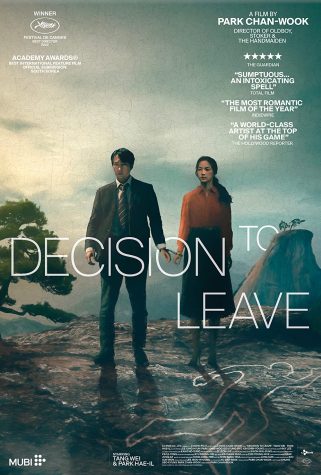An Opinion On Opinions
Opinion on Red Button Enter on Black Computer Keyboard. Courtesy of contemporaryseeker.com
The world is built on belief. Whether one decides to put their trust in a religious institution, a stock-market gamble or trust in a loving partner, belief that events will turn out a certain way gives us the ambition to make decisions accordingly. It is the weight of these ideas that interlock the fibers of the human psyche, to the point where often the belief becomes indistinguishable from fact to the beholder of the thought, and thus creates a heartfelt, deeply-rooted opinion.
All decisions that we make as human beings must be based on the assessment of the situation around us, and even when a solution may seem completely obvious without the influence of opinion, it is still the opinion of the beholder to actually make that obvious decision as opposed to choosing something else. When an opinion affects literally every aspect of our life, we start to feel a sort of self-importance with our own existence. The fact that we get to decide what to do with our lives automatically makes us more susceptible into thinking that whatever opinion we have must be the correct one since it has sufficed us so far in our own survival. Since these ideas have worked so well for us so far, we start to feel significant when we try to reach out and help others by voicing our opinion on what we believe is true.
If the sharing of opinion had just ended there, with a constructive and open mind to objection, the world would be a better place.
But the ambition of the world knows no restraint when it comes to doing whatever it takes to gain attention. The amount of violence that stems from the expression of opinion is too monumental to ignore. In recent years, more people, it seems. are forming a more nihilistic attitude towards ideas other than their own, as they are pushing the limits of what it takes to gain attention and to make their voice heard.
But where do these violently angry ideas and conceptions stem from? When heated debates turn violent and the streets have a streak of red with protest. Are they products of a mental illness, or just backlash from the troubles in society?
These questions remind me of a time in my AP Literature class when we were discussing the practicality of bringing up the topics of religion and politics at the family dinner table. When it was my turn to speak, I nervously voiced my opinion that bringing up these issues were not appropriate at the dinner table, as the consequences of doing so leads to an influx of egotistical statements and emotional venting. Just think about it for a second: you have a relative whom you have not seen for a very long time who is probably just starting to settle into the family conversation. I’m sure they, just like any other person, has that unrelenting demon tugging at the conscience of your mind, nagging, “You’re smart; prove that you are smart. Show them you know something substantial.” Then the urge to show self-worth will spark topics like religion and politics in order to combat this fear of being some form of stupid or airheaded. However, as the demon keeps pulling—asking for more and more—the greater self-consciousness arises and almost forces you to spout your opinion.
This blind passion that consumes the soul will definitely make you talk, but will cease to have you speak.
Because the fact is, the dependency on riling up emotions to put in one’s two cents about an issue results in faulty pathos that unhinges the fabric of stable society in more ways than one may think. Frequently in a society, especially when poverty and recession are high, many disgruntled opinions on how the way things are are left to boil inside the minds of the general population. In the worst cases, anyone who attempts to break out and suggest that society is flawed is usually oppressed and silenced by a population which adhere to social stigmas as consummate truth. This only causes the opinions to cook longer and grow more radical as time goes on. Sooner or later, though, one’s mind snaps, and a voice begins to cut through the oppression. The voice seems appealing, at first, because people gravitate towards a lone, defiant voice; the voice of a person instead of a body makes the message all the more genuine. People become attracted to this, sometimes in droves, and it increases in popularity. But if one listens to this individual’s words closely, we find that they are usually simplified, vague statements that come from a pool of conjecture rather than empirical facts.

Since there is a preconceived conclusion to each and every argument made, any room for questioning or debate is obsolete, as the notions are already gift-wrapped for their orators. The only thing they have to do now is to dismiss all refutations as lies and continue being not so much a supporter as a violent defender of their opinion. This makes an authority figure impossible to reason with if they are not going to accept the alternatives presented.
This is because in some way or another, everybody happens to be religious.
“Religious,” not necessarily in the sense that everybody believes in a higher power or meaning of life, but in that people naturally feel connected to certain aspects of life that give them a sense of elation and self-satisfaction. If the gratification doesn’t come from religion in the traditional sense, it comes from other activities such as appreciating nature, creating art or making music, just to name a few. A person who is obsessed with music, for example, is not only an expert in its creation, but also feels satisfaction whenever a favorite piece is played.. While a general feeling of elation is the product of emotion alone, the elation of belief is the recognition that whatever stimulates you defines who you are.
Everybody has something that they deeply care about; whether it is menial or existential, it gives a purpose to life that would be empty and without passion in its absence. That is why people become so emotional regarding their beliefs: There is almost a spiritual connection that surpasses both the thresholds of logic and emotion, and to the beholder this is absolute truth.
But the question still remains as to how opinions can be expressed without bias or some egotistical agenda. The key to this lies in one word: observation. It is crucial that, in forming one’s opinion, you must observe the world around you in every conceivable way in order to get the least biased result possible.
It may seem obvious to suggest that observation is used to form opinion, but the observation that we seek is often narrowed by the blinders of a fixed conclusion, also known as bias. An example of this would be when a person chooses only to follow one source of news that is established already to have a considerable political leaning to begin with. By doing this, a person neither opens their mind nor acts in an intellectual manner at all, but rather reinforces the answers they want to hear. People who do this regularly are ironically the ones that get the most angry at any dissenting opinion. This method of regurgitation can only be detrimental to the way we evaluate issues, because, in reality, we are not evaluating anything at all. We are merely passing other’s opinions as our own and claiming that we are smarter because we have chosen the “right” one.

Two men having a meeting in a cafe, smiling. Courtesy of mumscafe.com
Instead we must chose to observe rather than react. Look at the world that directly affects you to begin with. Notice what makes people tick and try to be objective with the vast array of opinions that you are presented with in society. It is important to consider each opinion present as if was as valuable as your own, and start to ask questions about each. For example, instead of dismissing someone’s opinion on why God exists, ask the question: “Is it possible that God really exists?” or “Why would people believe in God to begin with?” This method of questioning should be applicable to all subject matters that come up in conversation, because, although seemingly tedious, this is probably the best method in forming the most objective opinion possible. It is much too often that young people piggy-back off the established opinions of their mentors and peer group instead of branching out and trying to learn about the world for themselves.
That leads into the other component of being more nuanced in expressing an opinion: restraint. Although it may seem straining and vexing holding in your heartfelt belief in the midst of opposition, restraint offers us not only an added sense of maturity to your demeanor, but it makes you more observant of why the opposing side might believe what they believe. Then when you are given the chance to refute an opinion, don’t lash out with one-sided arguments and insults. Instead, try to justify your side of the argument as much as you can by bringing up the facts you have researched in a calmer, more dignified manner.
Yes, no one can control the anger someone feels when hearing an opinion that may be considered ridiculous. However, one can use this internal upset to concentrate one’s mind on presenting key and completely logical arguments to support your side instead of perpetuating more hate. One of the advantages of being upset at something is that it causes the brain to notice more discrepancies in life that may have been previously taken for granted if you were in a better mood. So, with this natural state of observation, it only makes sense that we should use this natural anger to point out more reasons why we think our opinion is right rather than disparaging the other party.
So in the end, am I suggesting that opinions only bring violence and brutality? Well, no, of course not. All I am suggesting is that the more outspoken people in society should be careful to make sure that their opinions and ideas are not shared solely for egotistical purposes and are actually based on original thought instead of societal perpetuation. Opinion is what makes the world progress, and without it, humanity would be eternally in a state of limbo without ideas to counteract such bleakness. However, when ideas are brought up, they should be done so in a way where we basically follow the golden rule: We should show as much open-mindedness and respect for other opinions the way we would want our opinions to be respected.











